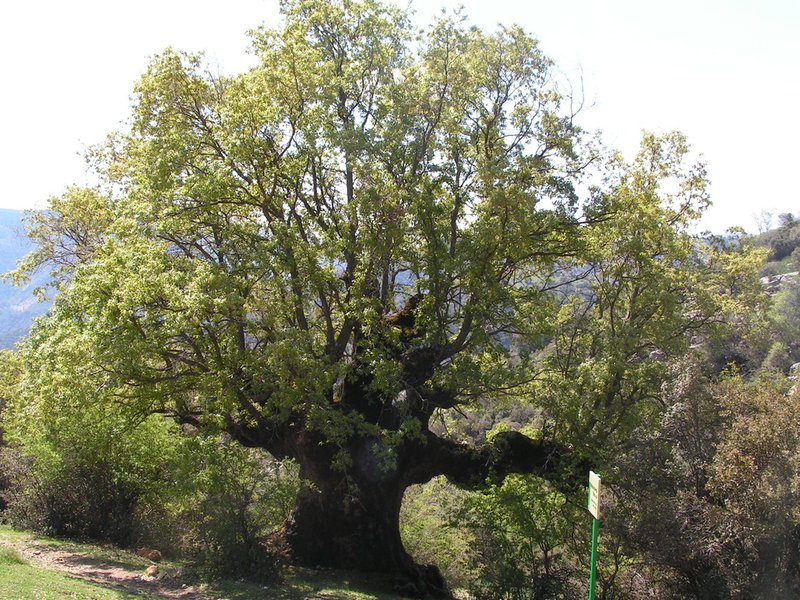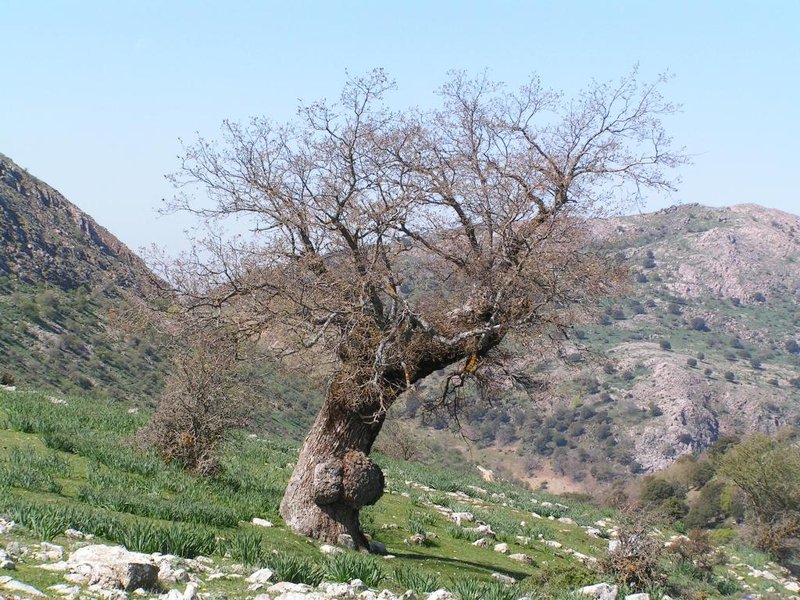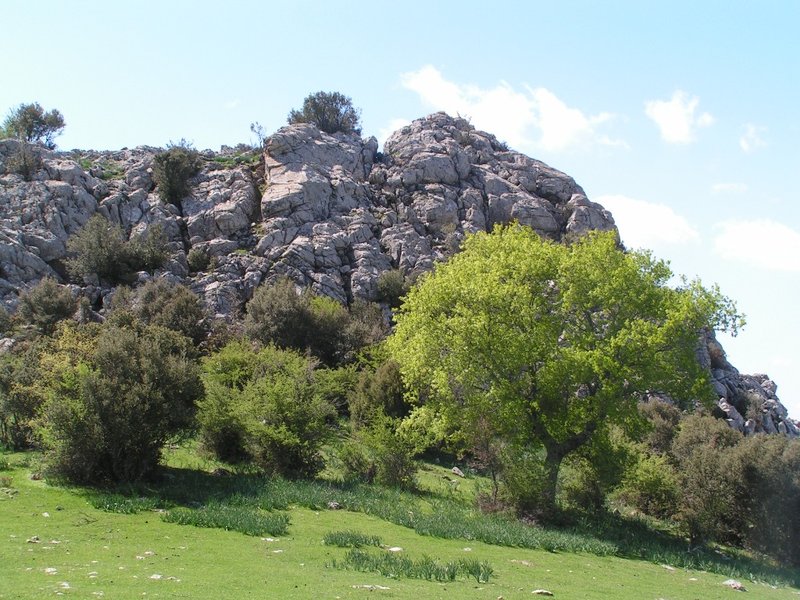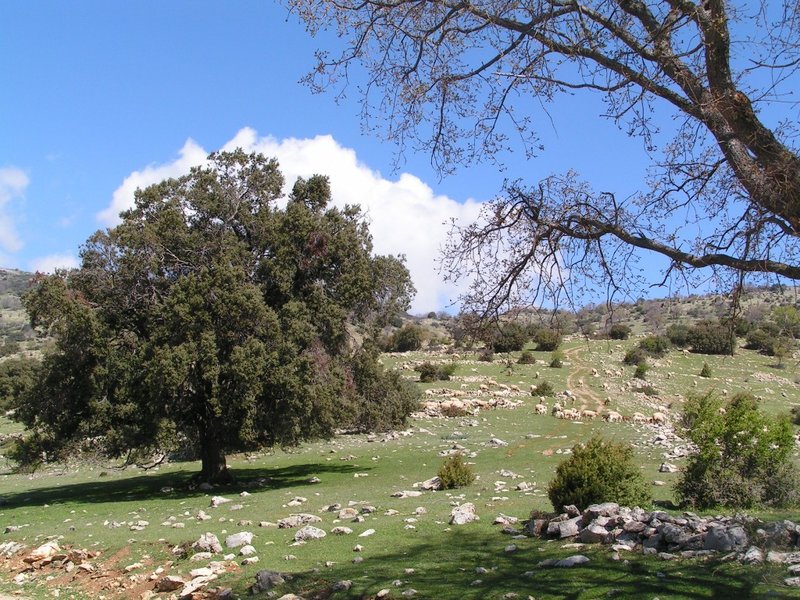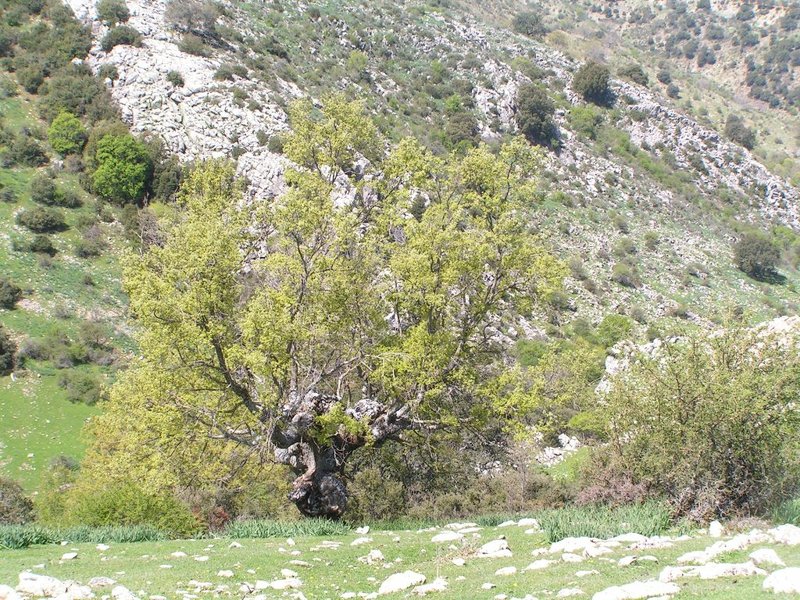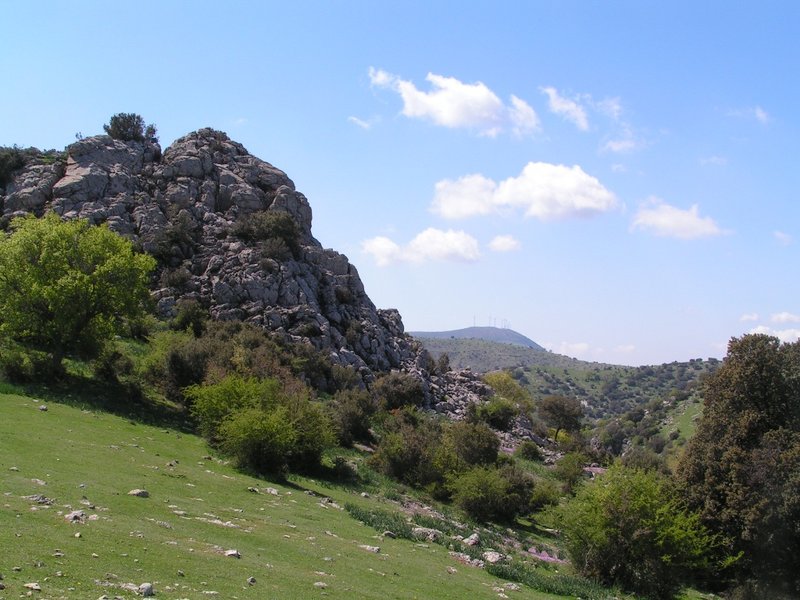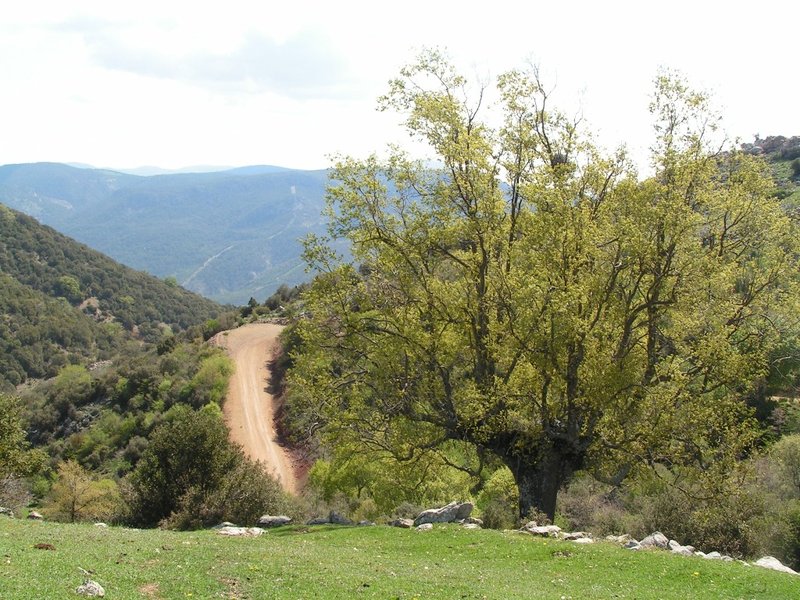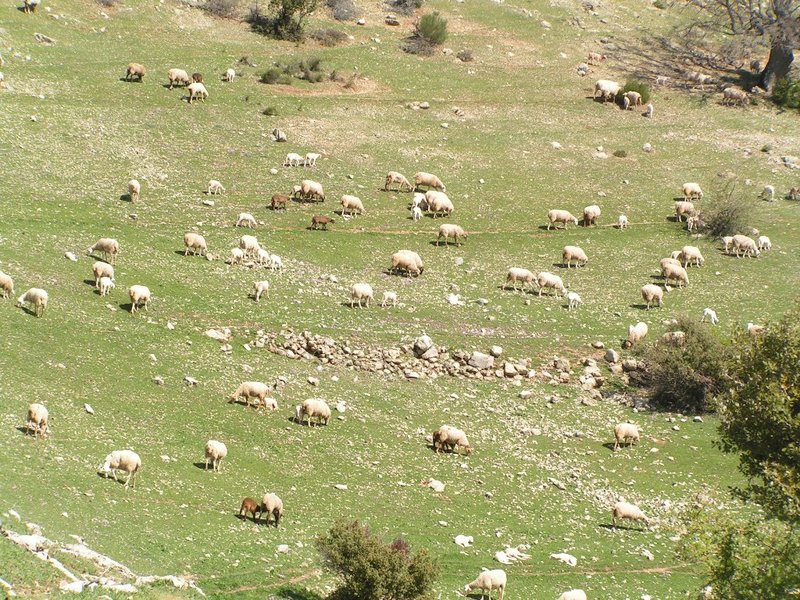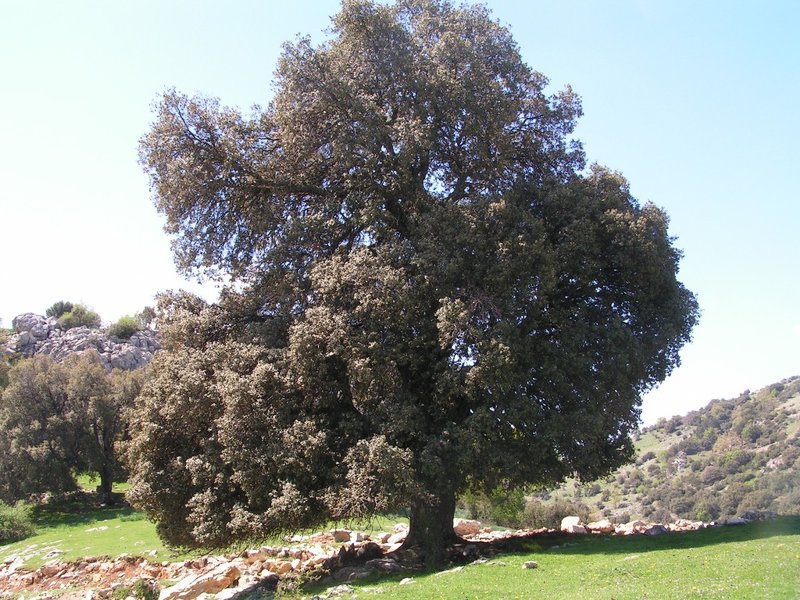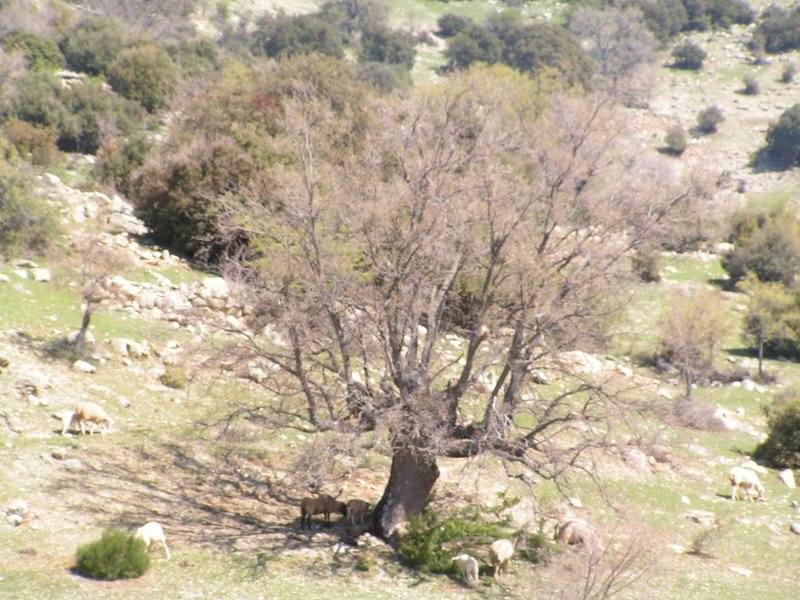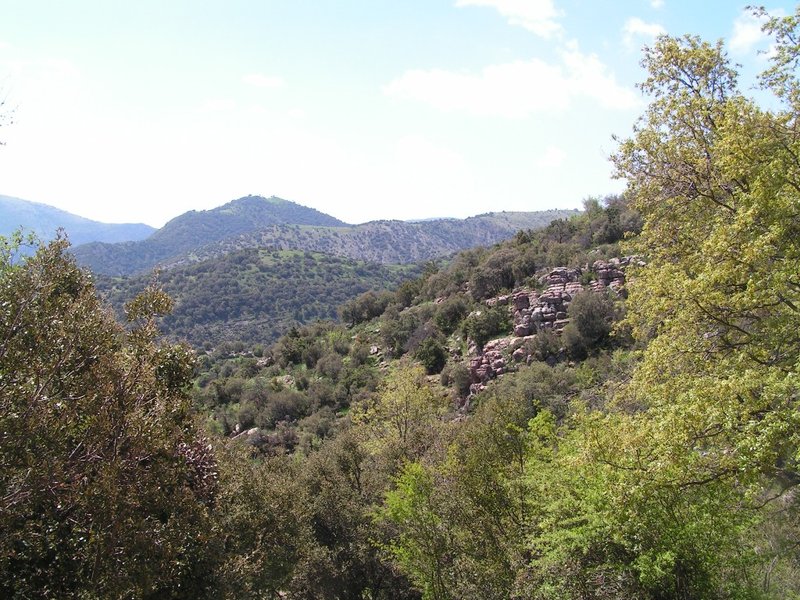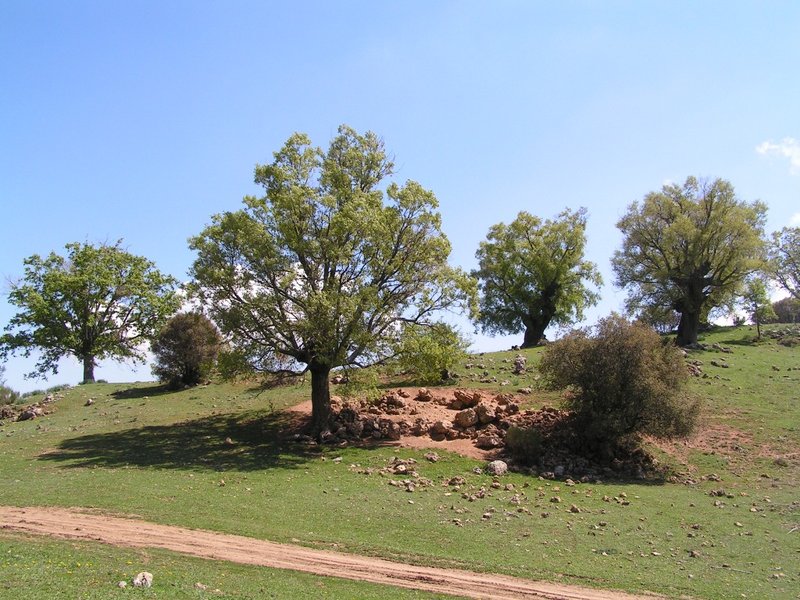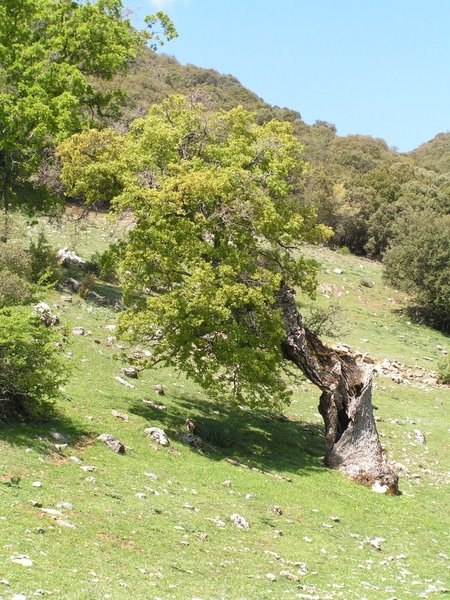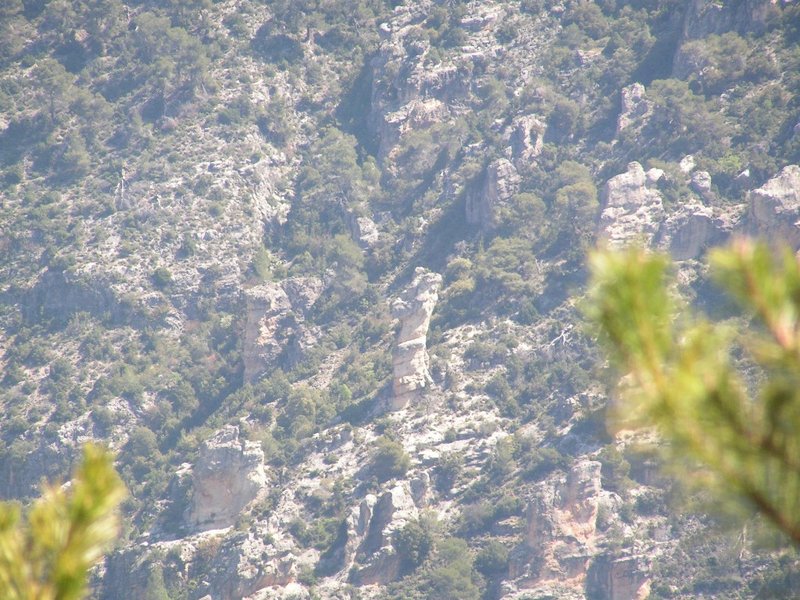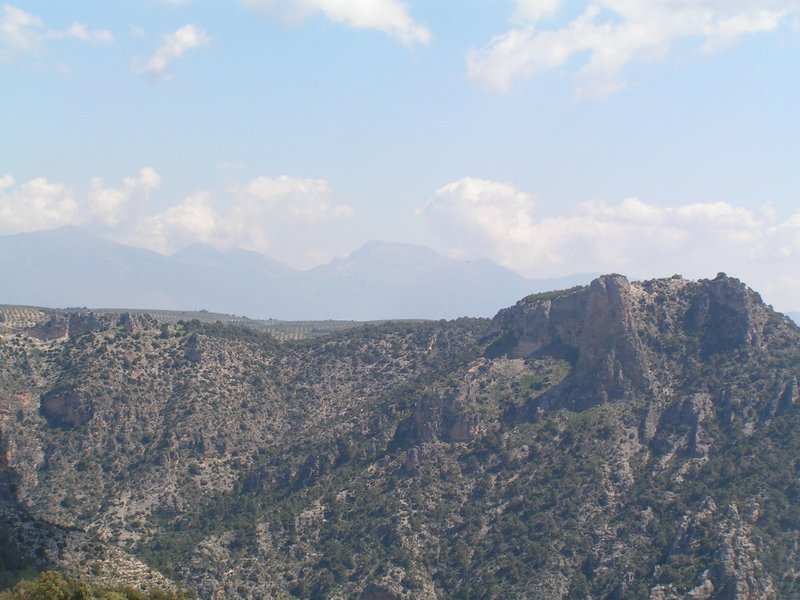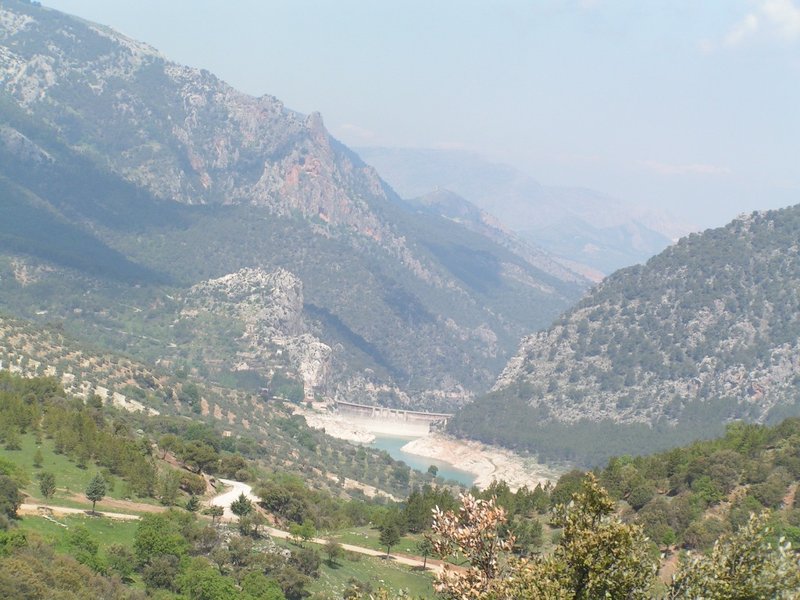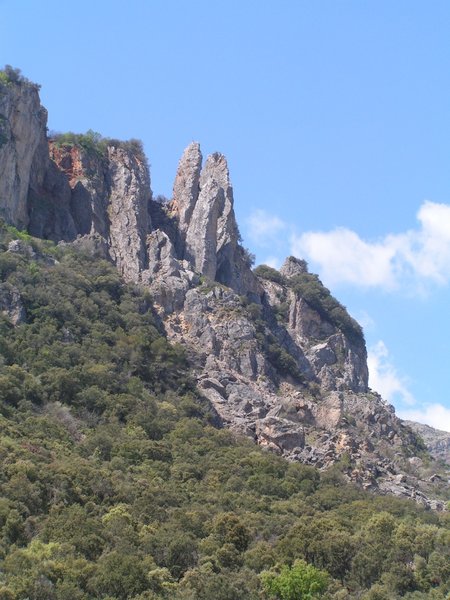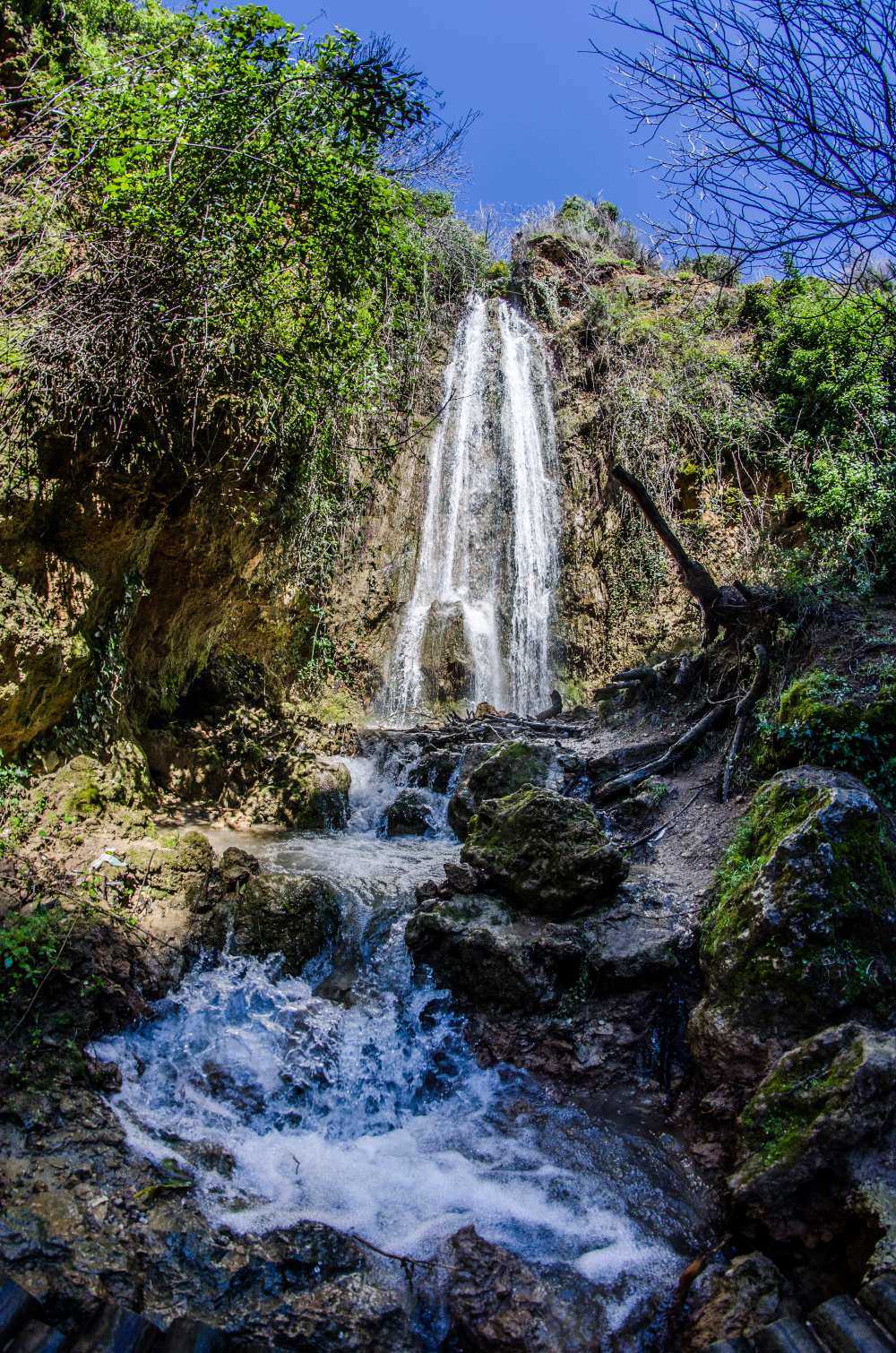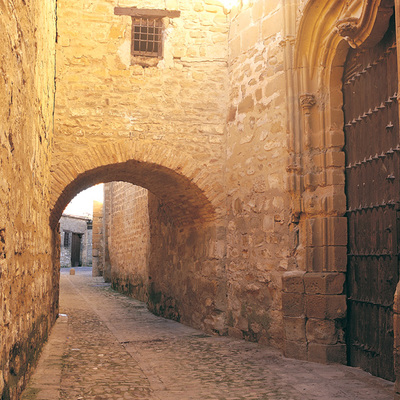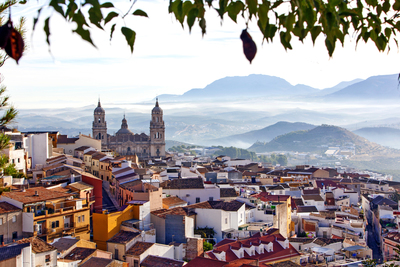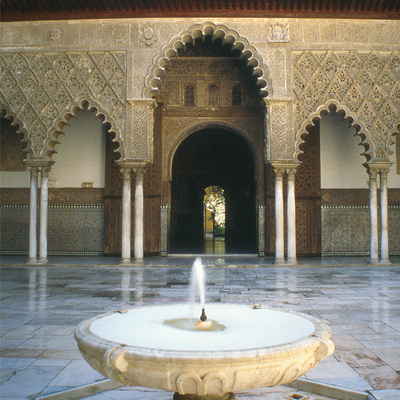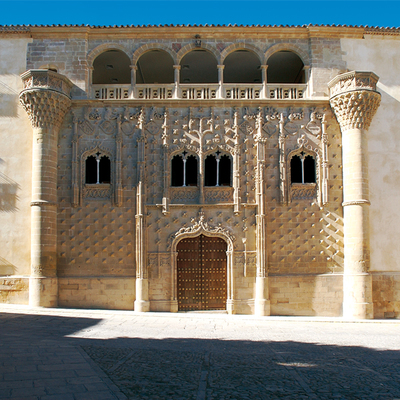Quejigo del Carbón
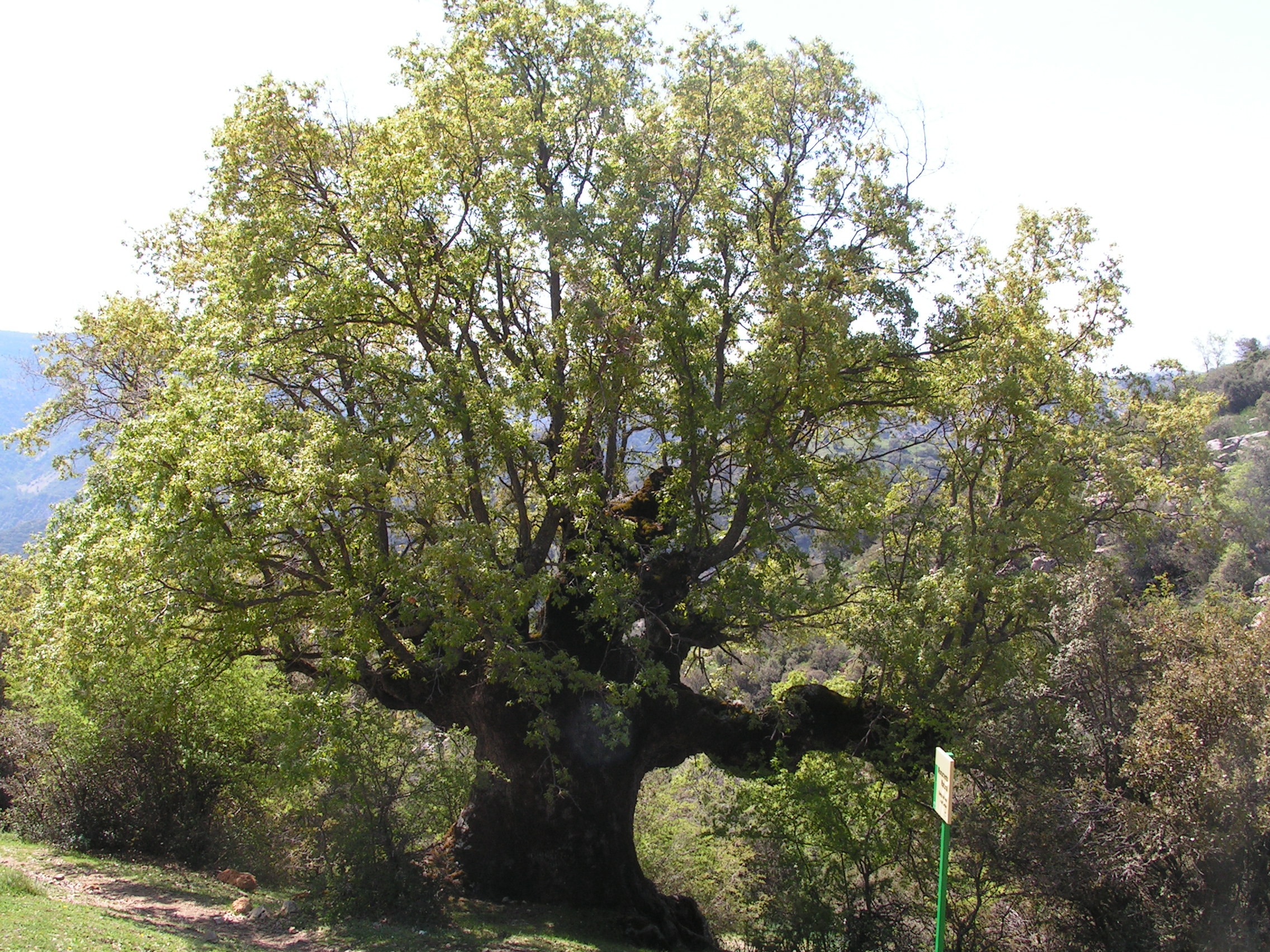
The Portuguese oak is one of the most representative Mediterranean trees. Just a few kilometers from the village of Valdepeñas de Jaén there is an ancient example of the species, known as "del Amo" (of the master) or "del Carbón" (charcoal). Its 12-metre perimeter could lead you to believe this was one of the largest in Andalucía. To give you some idea, up to 200 people can enjoy the shade underneath it. These dimensions are the result of more than 500 years of life. This majestic presence seems to be the reason why its owner never tired of repeating the fact that it belonged to him, and this may be where it got its name.
Man also played his part in the way this Natural Monument looks. This species of tree does not usually have such a large trunk in contrast to the limited development of the canopy. It is no coincidence that this unique tree is also known as "del Carbón", referring to what it was once used for. It seems that it was constantly being trimmed to obtain raw materials to make charcoal. This cutting back lead to its unusual shape.
The tree is at some 1,800 metres above sea level, in surroundings typical of the Sierra Sur de Jaén Mountains. The rugged topography, along with a sunny, relatively cool atmosphere with good levels of rainfall, are ideal for this deciduous species. On its branches you can see strange rounded shapes, known as "agallas", which are the tree's response to chemical substances secreted by certain insects and fungi.
In the surrounding area there is abundant vegetation of Corsican and Aleppo pine, holm oak, wild olive, cherry and other fruit trees.

